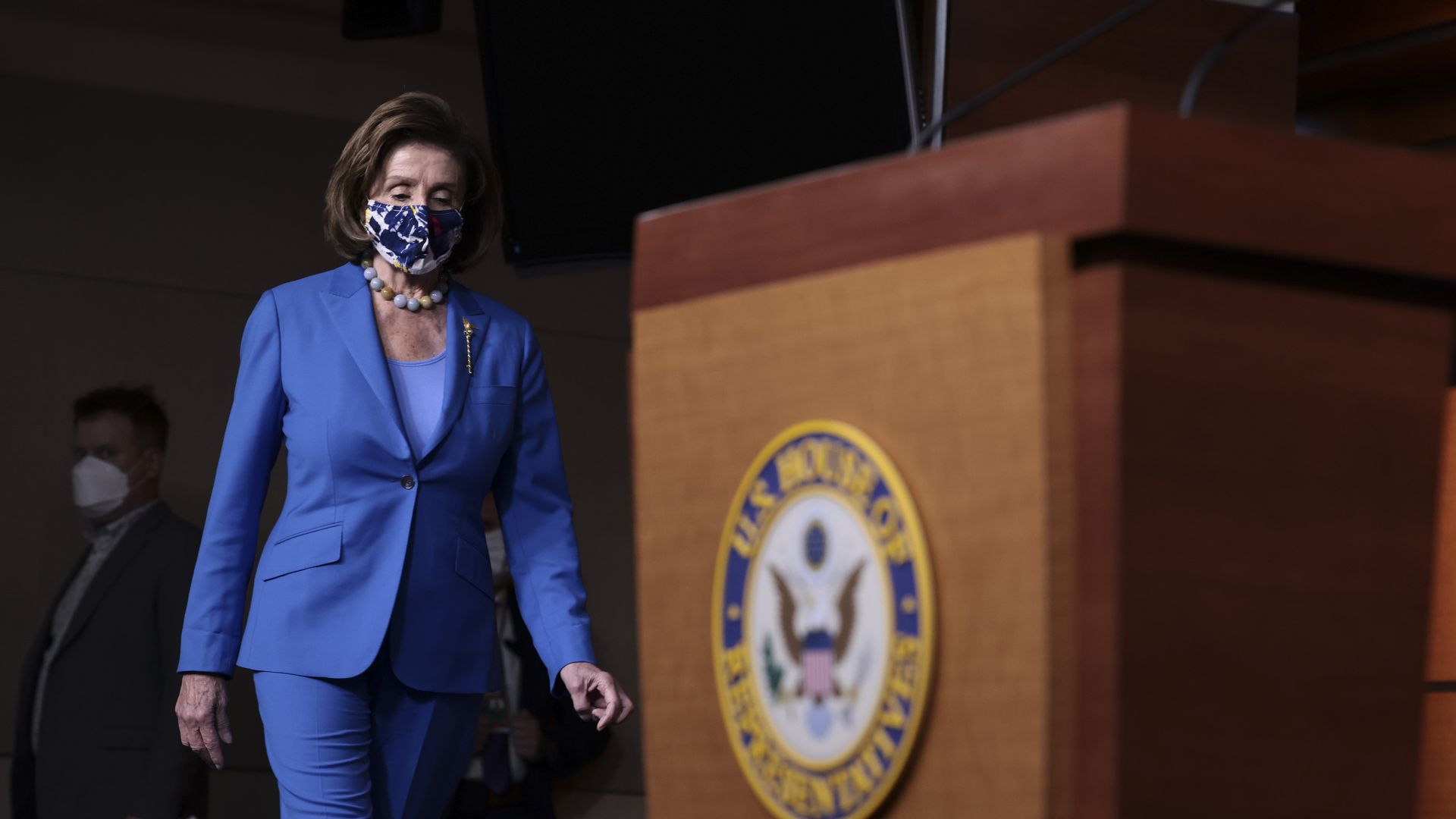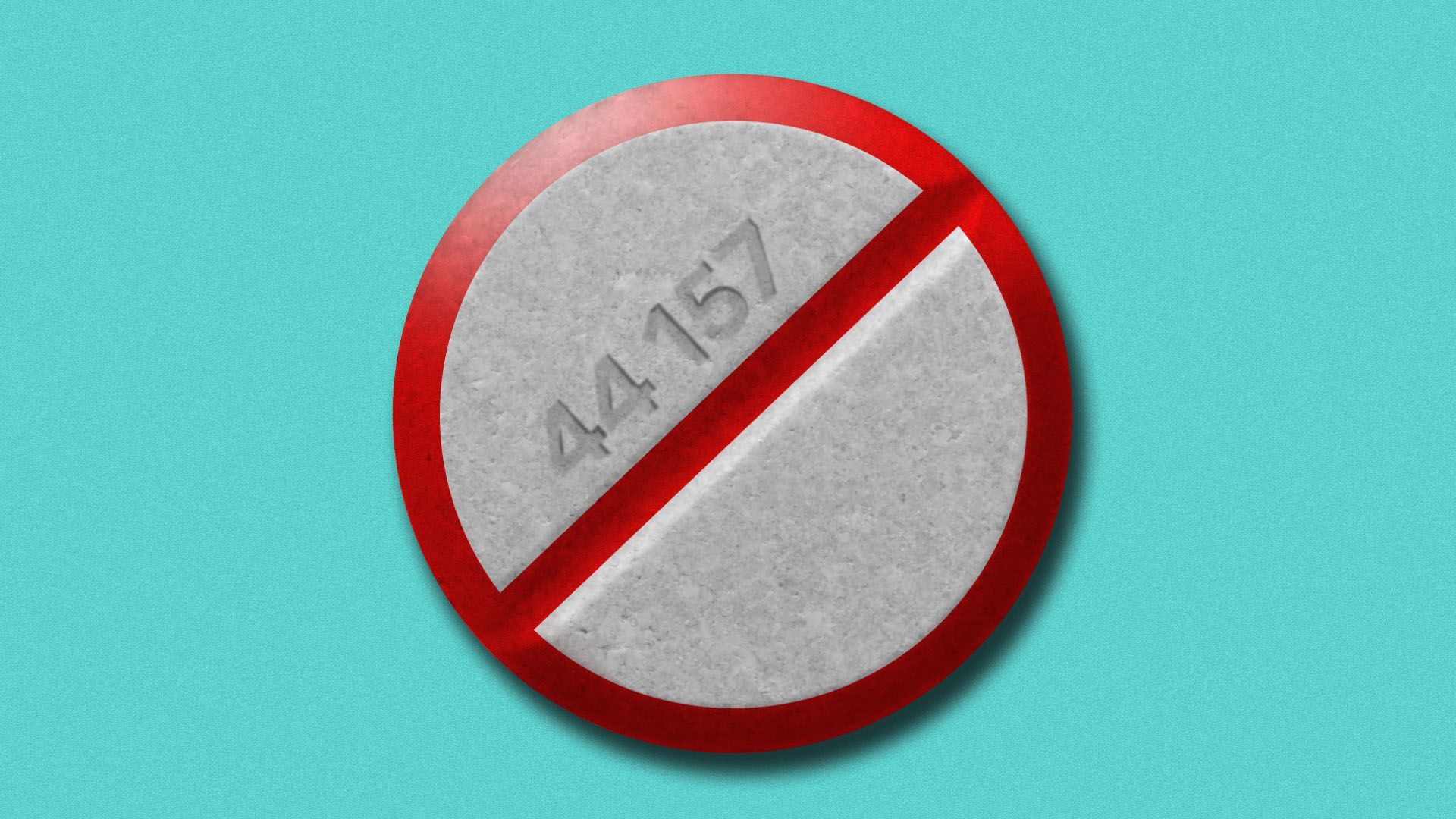Plus: America's caregiving crisis | Wednesday, October 13, 2021
| | | | | | | Presented By PhRMA | | | | Axios Vitals | | By Tina Reed ·Oct 13, 2021 | | Good morning, Vitals readers. Today's newsletter is 802 words, or a 3-minute read. 💉 Situational awareness: NIH data shows people who got the Johnson & Johnson COVID shot have a stronger neutralizing antibody response if they receive an mRNA shot instead of a second J&J one, Axios' Caitlin Owens reports. | | | | | | 1 big thing: Low vax rates exacerbate caregiving crisis |  | | | Illustration: Sarah Grillo/Axios | | | | American families shouldered an enormous burden caring for family members even before the pandemic, and a shortage of professional caregivers now is only likely to make that burden heavier. The big picture: Nursing homes and other long-term care settings have seen a staff exodus both during and after the pandemic, especially when they've imposed vaccine mandates — poking new holes in a system that was already full of them. "We have this terrible tradeoff right in a lot of parts of the country where we can either have staff working who aren't vaccinated and put our older adults at risk, or we can be short-staffed and that also puts older adults at risk," David Grabowski, a health policy professor at Harvard, told Axios. By the numbers: Health care employment is down by 524,000 jobs since February 2020. Nursing and residential care facilities account for about 80% of the losses. Last week's jobs report showed another 38,000-job decline in nursing and residential care. - "We are losing more people than we can recruit," Gayle Kvenvold, CEO of industry trade group LeadingAge Minnesota told the Minneapolis Star Tribune about concerns in her state. Seven in 10 nursing homes and 29% of assisted-living facilities have limited new admissions as a result.
Between the lines: The kind of care delivered in nursing homes and assisted-living facilities has long been a patchwork in the U.S. - It's expensive, it's hard for all but the poorest patients to get insurance coverage for it, and facilities offer widely differing levels of care. It's mostly been family members that have filled in the gaps.
- Unpaid caregiving is a burden that has traditionally fallen disproportionately on women — as has child care, which is facing its own pandemic crunch.
|     | | | | | | 📈 2. Data point: Boosters take off |  Data: CDC; Chart: Will Chase/Axios More Americans are getting a booster dose of coronavirus vaccine than are getting their first shot, Caitlin writes. Why it matters: Some people will undoubtedly benefit from getting a booster shot, but experts say that the most important goal for the U.S. right now should be convincing vaccine holdouts to get their initial round of shots. Where it stands: 77% of the eligible population has gotten at least one dose of a COVID-19 vaccine, according to the CDC. About 12% of people 65 and older have received a booster. Share this story. |     | | | | | | 3. Democrats' tug-of-war with Medicare expansion |  | | | Photo: Anna Moneymaker/Getty Images | | | | If you squint (or read her deputy chief of staff's Twitter account), House Speaker Nancy Pelosi sent a relatively clear message this week: Some policy measures in the reconciliation bill are on the chopping block, and others will be time-limited, Caitlin writes. Why it matters: This has renewed the debate over whether the party should focus on strengthening the Affordable Care Act or expanding Medicare, both of which cost hundreds of billions of dollars. What they're saying: "The Dems must stand with the people, not fold," Sen. Bernie Sanders tweeted yesterday afternoon, referring to proposed Medicare changes. - Rep. Pramila Jayapal said the progressive caucus views the benefit expansions as non-negotiable, according to BGOV's Alex Ruoff.
Yes, but: Moderates — specifically Sen. Joe Manchin — have been saying that policies included in the reconciliation bill should be targeted to the needy. For now, the Medicare benefit expansion would be available to all seniors. - Other members, like Rep. Jim Clyburn, make the case the party should focus on racial equity by filling the Medicaid coverage gap, which disproportionately impacts people of color in the South.
- And the beefed-up ACA subsidies expire next year right before the midterm elections, making extending them a political no-brainer.
Be smart: One argument for expanding ACA subsidies and filling the Medicaid gap over the long-term and only expanding Medicare benefits for a couple of years is purely strategic: Republicans would probably feel more pressure to extend Medicare benefits than the other two programs. |     | | | | | | A message from PhRMA | | Bringing the VA system to Medicare could hurt patients' access | | |  | | | | Congress is considering a plan that would tie medicine prices in Medicare to those in the U.S. Department of Veterans Affairs. This misguided approach is the latest in a series of government price-setting proposals that threaten patients' access to medicines and future innovation. Learn more. | | | | | | 4. Doctors' new challenge with aspirin guidance |  | | | Illustration: Sarah Grillo/Axios | | | | New draft guidance warned Tuesday that adults who do not have a history of heart disease or stroke should not take low-dose aspirin. But millions of patients may have been taking the blood thinner without their doctors' knowledge, Marisa writes. Why it matters: It's a revision of the panel's 2016 recommendation that recommended some people take baby aspirin daily to prevent heart disease and colorectal cancer. The big picture: The task force said daily low-dose aspirin in people 60 years or older has no net benefit due to an increased risk of internal bleeding. - "Aspirin is one tool or one option we have but it shouldn't be the only one," Chien-Wen Tseng, a member of the U.S. Preventive Services Task Force, tells Axios.
|     | | | | | | 5. Catch up quick | - Moderna is urging the FDA to authorize a half-size booster of its COVID-19 vaccine. (CNN)
- Elizabeth Holmes' defense showed Safeway officials vetted their Theranos partnership (Wall Street Journal)
- How much does a COVID-19 test cost? It depends. (Marketplace)
- Best Buy is pushing ahead with its health care strategy by acquiring Current Health. (CNBC)
|     | | | | | | A message from PhRMA | | Bringing the VA system to Medicare could hurt patients' access | | |  | | | | Congress is considering a plan that would tie medicine prices in Medicare to those in the U.S. Department of Veterans Affairs. This misguided approach is the latest in a series of government price-setting proposals that threaten patients' access to medicines and future innovation. Learn more. | | | | 📬 Love this newsletter? Tell your friends, co-workers and family members to subscribe! |  | | It'll help you deliver employee communications more effectively. | | | | | | Axios thanks our partners for supporting our newsletters. If you're interested in advertising, learn more here.
Sponsorship has no influence on editorial content. Axios, 3100 Clarendon Blvd, Suite 1300, Arlington VA 22201 | | | You received this email because you signed up for newsletters from Axios.
Change your preferences or unsubscribe here. | | | Was this email forwarded to you?
Sign up now to get Axios in your inbox. | | | | Follow Axios on social media:    | | | | | |









No comments:
Post a Comment